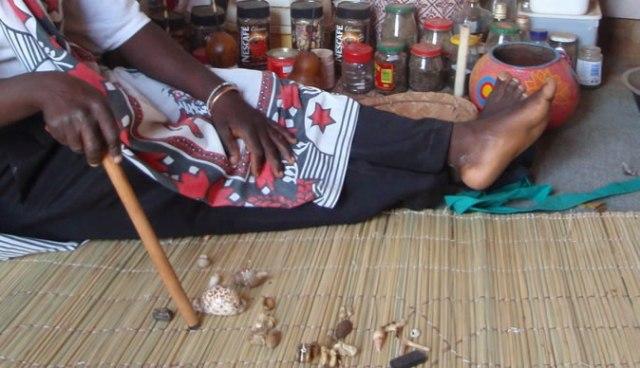60% of Zimbabweans visit n’angas: Minister of Health
HEALTH and Child Care minister Douglas Mombeshora has claimed that more than 60% of Zimbabweans are seeking the services of traditional healers.
Zimbabwe’s health delivery system has been on the decline for decades, while professionals in the sector have thrown in the towel and left to work in other countries.
At least 4 000 health workers left Zimbabwe to work in other countries such as the United Kingdom and South Africa as the government struggles to pay competitive salaries to nurses and doctors.
Speaking during the official opening of the Tait Medical Centre in Rusape yesterday, Mombeshora said while many people were seeking the services of traditionalhealers, they needed to visit hospitals.
“I know 60% of people, who are gathered here, are seeking the services of n’angas to get medical assistance,” he said.
“I know that I am not saying n’angas are not good, but there is a time you need to go to a hospital.”
Mombeshora’s remarks come at a time when there are reports of deteriorating conditions in public hospitals, with patients dying without receiving treatment.
Treasury has over the years failed to set aside 15% of the national budget for the health sector, in line with the Abuja Declaration on Health, signed by African Union (AU) member States in 2001.
The declaration is a commitment to allocate at least 15% of each country’s annual national budget to the health sector to improve healthcare systems and achieve universal health coverage.
The minister said the government was working on the National Health Insurance Scheme Bill, which would see Zimbabweans receiving free treatment.
“The Bill is at final stages and we anticipate presenting it to Parliament this month and with the full implementation expected in 2026,” he said.
“Every Zimbabwean will be getting free medication, X-rays at every public hospital.”
Mombeshora said the government would increase domestic funding for health, improve access to essential medicines, construct and upgrade health facilities.
He said Zimbabwe was no longer classified as a high burden country for tuberculosis, adding that the country had recorded a decline in malaria cases despite occasional outbreaks.
Meanwhile, Mombeshora said Zimbabwe’s life expectancy had improved, adding that for men, it was 64 years, while for women, it was 68 years.
According to reports, Zimbabwe’s healthcare system has evolved since independence in 1980, initially recognised for its effective public health initiatives, but has faced substantial challenges due to economic downturns and political instability.
The healthcare system in Zimbabwe faces numerous challenges, including resource constraints, with the economic decline eroding healthcare budgets, affecting service provision at all levels.
Most of Zimbabwe’s hospitals are under-equipped, lacking essential medicines and medical supplies.
Medical institutions are also suffering from a significant shortage of skilled healthcare professionals, exacerbated by migration of qualified staff to other countries because of poor salaries.




